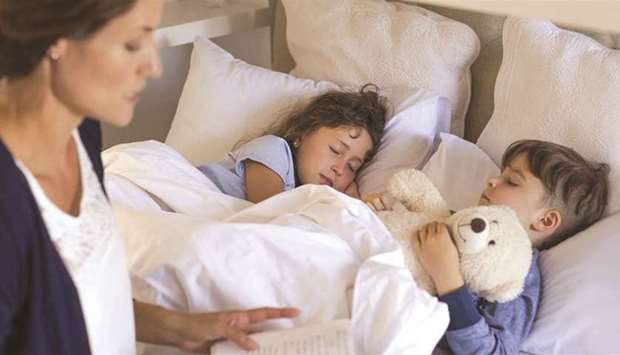Bedtime can be a battle for many parents, with more than half in a recent study saying it is the single most stressful time of their day – and almost two-thirds of respondents telling that their kids won’t sleep until after 10pm.
So, what time should we go to bed? It varies, says Dr Paul Kelley, an honorary associate in sleep, circadian and memory neuroscience at the Open University. The topic of young children’s bedtimes is ‘very badly’ researched, he says. That said, “9pm is a sensible approach.”
For teenagers, Kelley says that, generally speaking, 13- to 16-year-olds should be in bed by 11:30pm. However, our school system needs a radical overhaul to work with teenagers’ biological clocks. “If you’re 13 to 15 you should be in school at 10am, so that means you’re waking up at am. They don’t get to do that, but that’s the one that fits in with their biological clocks.”
In an ideal world, teenagers aged between 17 and 20 should be in bed by midnight and wake up at 11am. “You shift later wake times in early adolescence and early adulthood. It then very gradually drifts back to 10am, then 9am and then earlier and earlier. So, for someone like me, who’s 70, a lot of us tend to get up at 5am.”
I’m 31, and Kelley says an ideal time for me to hit the sack is between midnight and 2am. Kelley and I speak at 9am, which he apologies for. “Neither of us are with it at the right time!” he laughs.
The crucial thing, he says, is to not be too hard on yourself. “Variation is normal. People tend to blame themselves for going to bed too late or getting up too early.”
When I was on the dole and liberated from any clocking-in card, I fell into what I thought was an unhealthy pattern of bedding down between 4am and 5am and waking up around midday. “That pattern you had when unemployed is more like you,” Kelley says. “I’ve been unemployed, and you settle into a pattern that suits you and it was a good routine; it worked. I did a lot of my Open University degree in that time,” he adds.

kids
